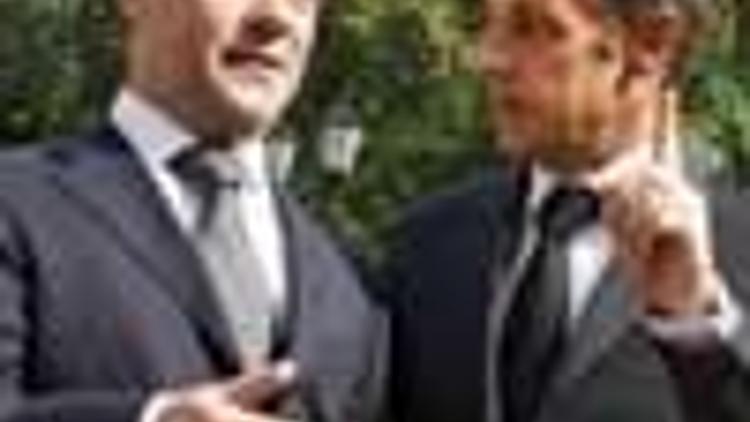Russia troops in Georgia to withdraw within a month
Güncelleme Tarihi:

Russia is to pull back its troops in Georgia within a month, French President Nicolas Sarkozy said on Monday, adding however that the agreement does not cover Abkhazia and South Ossetia. (UPDATED)
Sarkozy brokered a ceasefire deal that ended the conflict, but Western governments say Russia is in breach of that agreement because it has kept troops in buffer zones around South Ossetia and the second separatist region of Abkhazia.
"I fully share the point of view of president Medvedev that the starting point is the agreement," Sarkozy said at the start of talks with Russian leader Medvedev.
"It is precisely this agreement which should be carried out," said Sarkozy, who was accompanied in Moscow by European Commission President Jose Manuel Barroso and EU foreign policy chief Javier Solana.
"I have no doubt that if everyone acts responsibly we will find a solution" he said. "Like our Russian friends, we want to strongly defend our convictions."
Russia says its troops in the buffer zones -- which include undisputed Georgian territory -- are peacekeepers who are in compliance with the ceasefire deal.
In contrast to Russia's conciliatory tone with the EU over Georgia, tensions with the United States flared on Monday when Russia said it was sending warships including a heavy nuclear cruiser for exercises in the Caribbean Sea.
Russia has complained about the presence of U.S. naval vessels off its coast in the Black Sea, but Moscow denied the deployment to the Caribbean, during which its warships will dock in Venezeula, was in any way connected.
The European Union has warned it will suspend talks on a new partnership pact unless Moscow pulls its forces from Georgia. But the 27-member bloc has limited scope for influencing the Kremlin because it depends on Russia for its energy supplies.
CASTLE TALKS
Sarkozy is expected to discuss with Medvedev the prospects for sending an expanded peacekeeping force to Georgia -- a condition Moscow has set for pulling out its forces from the buffer zones.
"The aim is clear: as big a deployment as possible so the Russians can leave as quickly as possible," one French official told reporters at a weekend EU foreign ministers meeting.
The Organization for Security and Cooperation in Europe (OSCE) and the United Nations have had peace monitors in South Ossetia and Abkhazia since previous conflicts.
A Russian Foreign Minister spokesman said the EU's approach to the Georgian crisis was "balanced and pragmatic" and said Russia wanted to see an expanded OSCE mission on the ground around South Ossetia.
But the spokesman, Andrei Nesterenko, opposed an idea put forward at the meeting of EU foreign ministers for the creation of a civilian EU monitoring mission.
"We believe that will lead to excessive fragmentation of international monitoring efforts which today are already being carried out by the UN and OSCE," Nesterenko told a news briefing.
RUSSIAN RECOGNITION
There were conflicting signals over the weekend about whether Russia was ready to withdraw the troops.
Georgia said Russian forces were re-inforcing their positions in one buffer zone, near the strategic Black Sea port of Poti. Reuters was not able to immediately verify the report.
Russia has said it was morally obliged to attack Georgia to prevent what it called a genocide by Georgian troops in South Ossetia, where most residents hold Russian passports.
Medvedev has since defied the West by recognizing South Ossetia and Abkhazia as independent states. Nicaragua is the only other state to have joined Russian in granting recognition.
Alexander Lukashenko, president of Russia's ex-Soviet ally Belarus, said on Monday his country would look at following Russia's lead but he stopped short of recognition.
In the Hague, the International Court of Justice began hearing Georgian accusations that Russia violated the human rights of ethnic Georgians in Abkhazia and South Ossetia.
Photo: AFP

